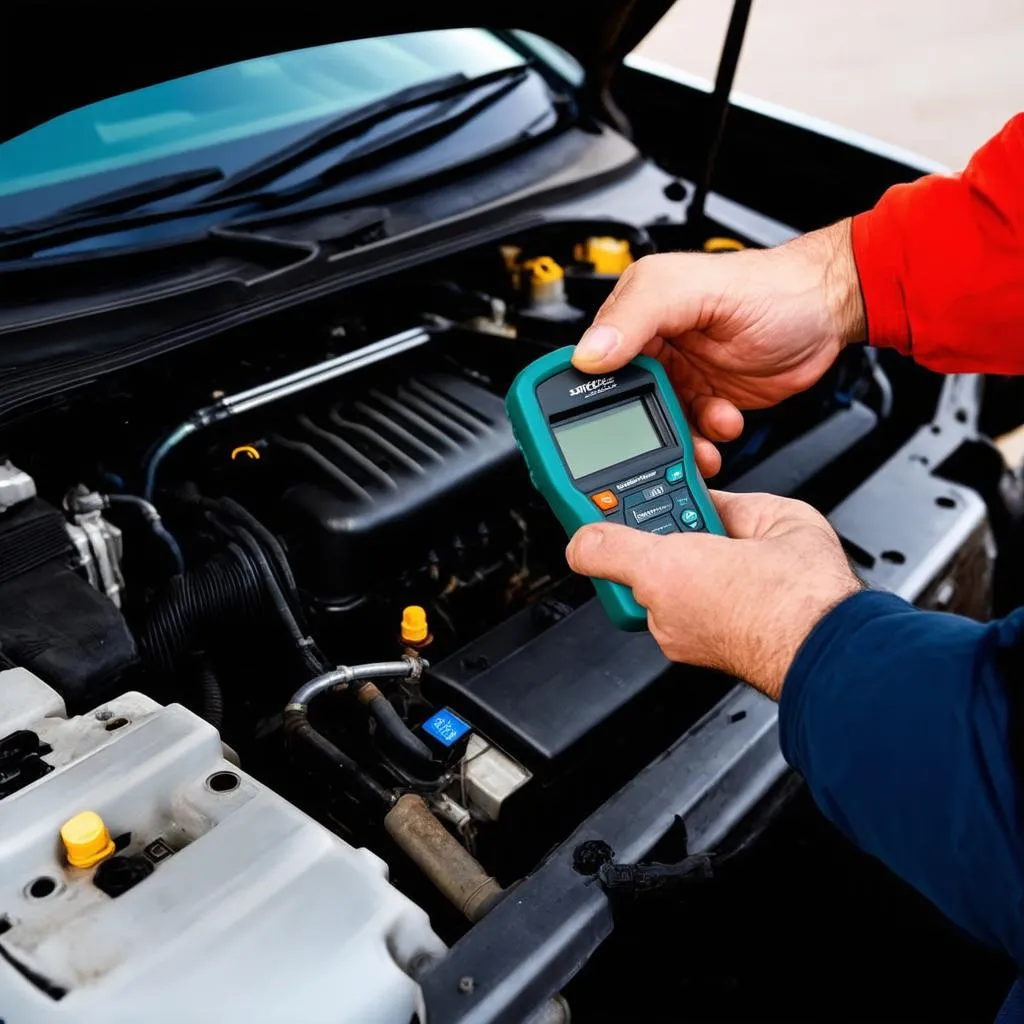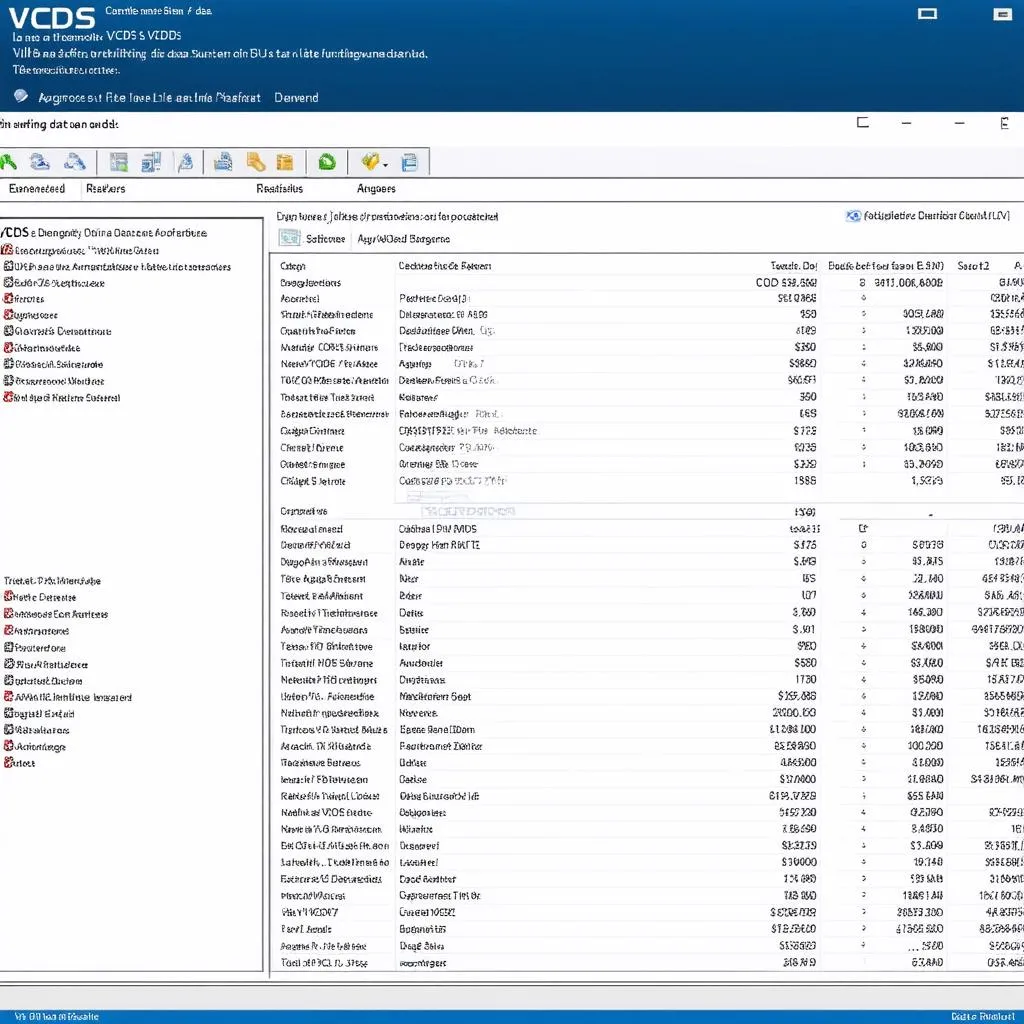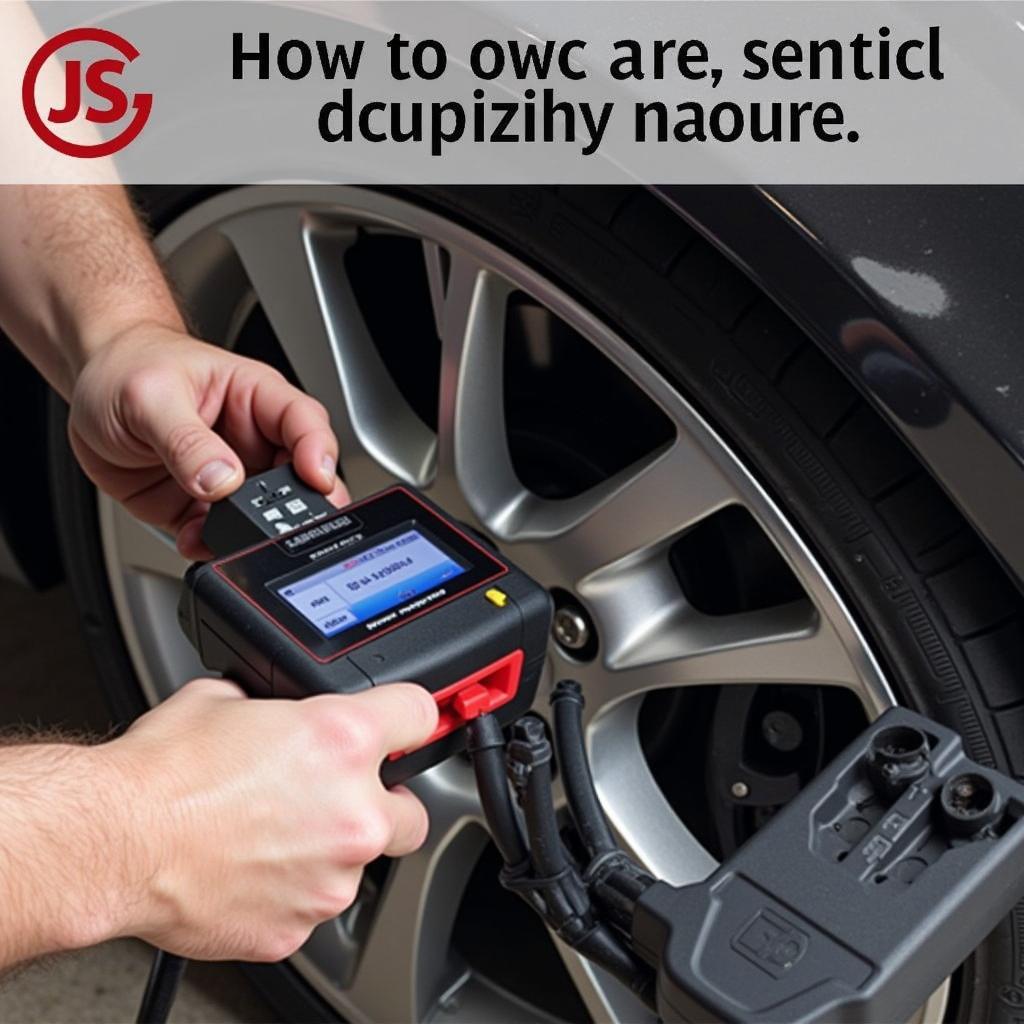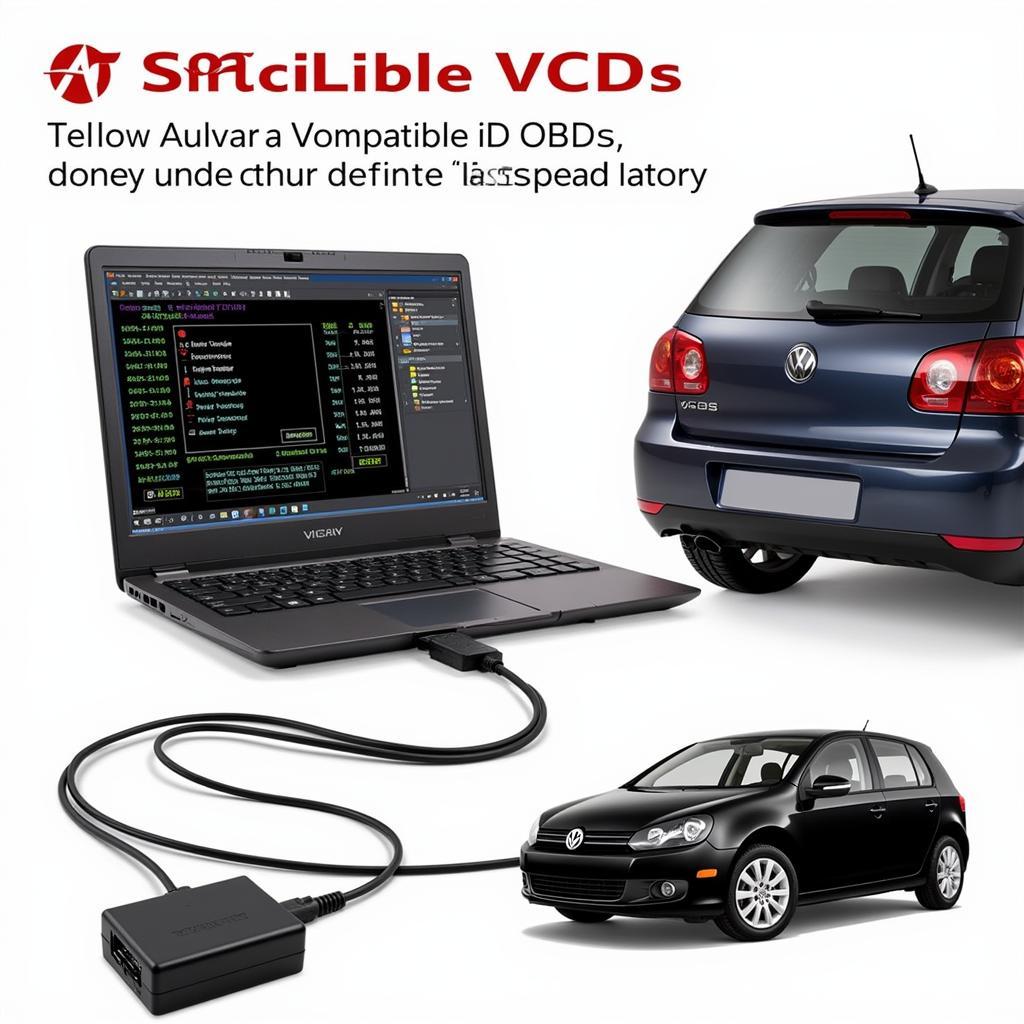In the realm of automotive diagnostics, having the right tools can make all the difference. For Volkswagen (VW) owners, the choice often boils down to two prominent options: OBD2 scanners and the Volkswagen Group’s proprietary system, VCDS (formerly VAG-COM). This comprehensive guide delves into the OBD2 vs. VCDS debate, exploring their functionalities, strengths, and limitations to help you make an informed decision.
Understanding OBD2: The Universal Standard
OBD2, short for On-Board Diagnostics, is a standardized system implemented in vehicles manufactured since 1996 in the United States (1994 for some models). It provides a common platform for accessing diagnostic data from a vehicle’s Electronic Control Unit (ECU).
Key Features of OBD2 Scanners:
- Read and clear Diagnostic Trouble Codes (DTCs): Identify and erase error codes stored in the vehicle’s ECU.
- Display live sensor data: Monitor parameters such as engine RPM, coolant temperature, and oxygen sensor readings in real-time.
- Perform basic emissions testing: Check if the vehicle’s emissions control systems are functioning correctly.
Pros of OBD2 Scanners:
- Universality: Compatible with a wide range of vehicle makes and models.
- Cost-effective: Generally more affordable than manufacturer-specific tools.
- User-friendly: Designed for ease of use, even for DIY enthusiasts.
Cons of OBD2 Scanners:
- Limited functionality: May not access all modules or functions within a specific vehicle brand.
- Generic fault codes: May not provide detailed descriptions or manufacturer-specific interpretations of DTCs.
 OBD2 scanner
OBD2 scanner
Exploring VCDS: The VW Specialist
VCDS, short for “VAG-COM System,” is a Windows-based diagnostic software specifically designed for vehicles within the Volkswagen Group, including Volkswagen, Audi, Seat, Skoda, Bentley, and Lamborghini.
Key Features of VCDS:
- Comprehensive module access: Communicates with all control modules in VW Group vehicles, enabling in-depth diagnostics.
- Advanced functions: Offers coding, adaptations, and basic settings adjustments for customization and repair.
- Detailed fault code information: Provides manufacturer-specific DTC descriptions and troubleshooting guidance.
- Live data logging: Records real-time sensor data for in-depth analysis and problem identification.
Pros of VCDS:
- Unparalleled depth: Unlocks the full diagnostic potential of VW Group vehicles.
- Coding and adaptations: Allows for customization and fine-tuning of vehicle settings.
- Manufacturer-level insights: Provides detailed DTC interpretations and repair information.
Cons of VCDS:
- Brand-specific: Only compatible with vehicles from the Volkswagen Group.
- Higher cost: More expensive than generic OBD2 scanners.
- Steeper learning curve: Requires some technical knowledge and familiarity with VW systems.
 VCDS Software Interface
VCDS Software Interface
OBD2 vs. VCDS: Which One is Right for You?
The choice between an OBD2 scanner and VCDS depends on your specific needs and technical expertise.
Choose an OBD2 scanner if:
- You own a non-VW vehicle or need a universal diagnostic tool.
- You primarily need to read and clear DTCs and view basic engine data.
- You prefer a cost-effective and user-friendly option.
Choose VCDS if:
- You own a Volkswagen Group vehicle and want access to its full diagnostic potential.
- You need to perform coding, adaptations, or access advanced functions.
- You prefer manufacturer-level detail and troubleshooting guidance.
FAQs about OBD2 and VCDS
Q: Can I use VCDS on other car brands?
A: No, VCDS is specifically designed for vehicles within the Volkswagen Group.
Q: Do I need a laptop to use VCDS?
A: Yes, VCDS is a Windows-based software that requires a laptop or PC for operation.
Q: Can I damage my car by using OBD2 or VCDS?
A: While both tools are generally safe to use, it’s crucial to follow instructions carefully and avoid making any modifications without proper knowledge.
Q: Where can I purchase a reliable OBD2 scanner or VCDS system?
A: Reputable online retailers like Cardiagtech offer a wide selection of diagnostic tools, including OBD2 scanners and VCDS systems, ensuring quality and authenticity.
Conclusion
Choosing between OBD2 and VCDS requires careful consideration of your specific needs and the level of diagnostic depth you require. While OBD2 scanners offer a universal and affordable solution for basic diagnostics, VCDS reigns supreme for Volkswagen Group vehicle owners seeking comprehensive diagnostics, coding capabilities, and manufacturer-level insights.
For professional-grade diagnostic tools and expert advice, consult CARDIAGTECH, your trusted source for automotive diagnostic equipment.


